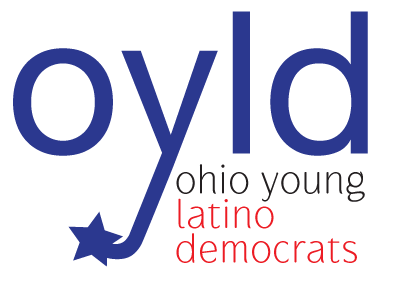Selected from a field of eight finalists, Ramona Reyes was appointed to the Columbus Public Schools Board of Education in January 2009 by her fellow members of the school board who saw her as an advocate for a quality education for all children. She is the first Hispanic member of the board overseeing a increasingly diverse population of 55,000 students.
Currently, Ramona is a human resources specialist at Nationwide Insurance Company where she has been employed for 18 years. She is the immediate past president of the Hispanic Chamber of Columbus and a bilingual trainer with Working Partners. She also serves as the Associate Publisher for Latino Achievers.
Ramona originally came to Columbus when she was awarded the Campbell Soup Scholarship, a scholarship for children of migrant farm working families, to attend the Ohio State University. While at Ohio State, she was a member and president of Alpha Psi Lambda fraternity and cabinet member of the Undergraduate Student Government. She graduated from the Ohio State University with a double major in Marketing and Transportation Logistics. She is an alumnus of the National Hispana Leadership Institute, a Grass Roots Leadership program.
Over the last several years she has committed herself to volunteerism and community service. Prior to joining the school board, she served a full term as a commissioner of the Ohio Commission on Hispanic/Latino Affairs, and helped organize the first Dia de los Ninos (Children's Day) event in Columbus, which now draws more than 3,500 visitors a year. She has helped organize a fund-raiser to rebuild the burned Ohio Hispanic Coalition offices, coordinated the first annual Hispanic Scholarship Fund walk-a-thon, is a member of the Columbus Association of the Performing Arts (CAPA), a big sister in the Big Brothers Big Sisters program, a United Way and Mid-Ohio Food Bank volunteer, and a U10 youth girls soccer coach.
Featured in the inaugural edition of Women's Book, she has been named a Columbus Hispanic Hero by the City of Columbus and the Columbus Crew. She has also been named a Distinguished Hispanic Ohioan by the Ohio Commission on Hispanic/Latino Affairs and the Governor.
Ramona is known by her peers for her passion to achieve her goals. "First and foremost she has a no-nonsense, results-driven attitude. Ever since I've known her from student leadership roles (at OSU) to her work experiences and the time we served together here at the Ohio Commission on Hispanic Affairs and Latino Affairs, she's (been) most interested in results and getting things done," said Ezra Escudero, executive director of the Hispanic and Latino Affairs Commission.


